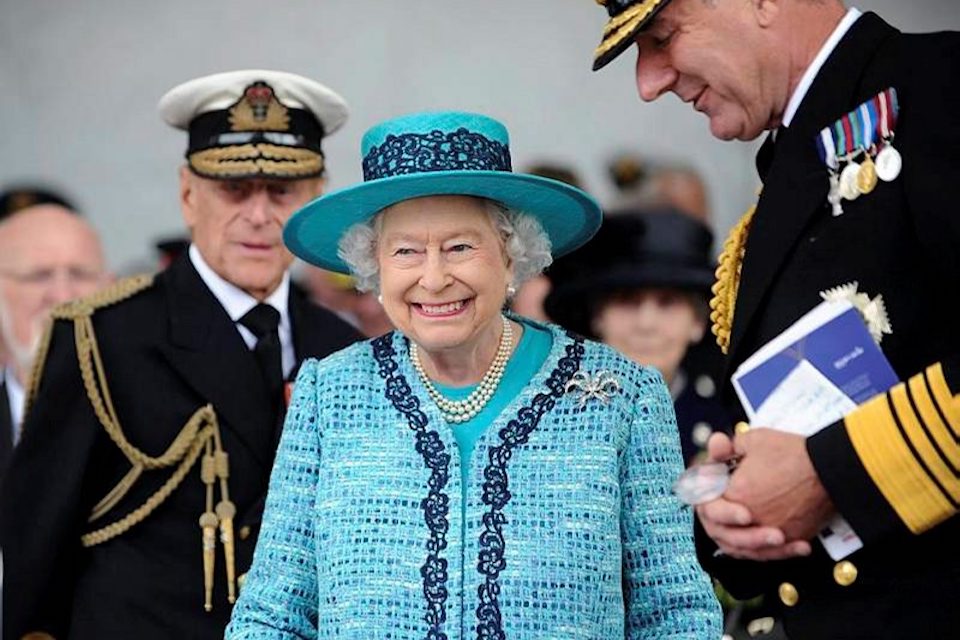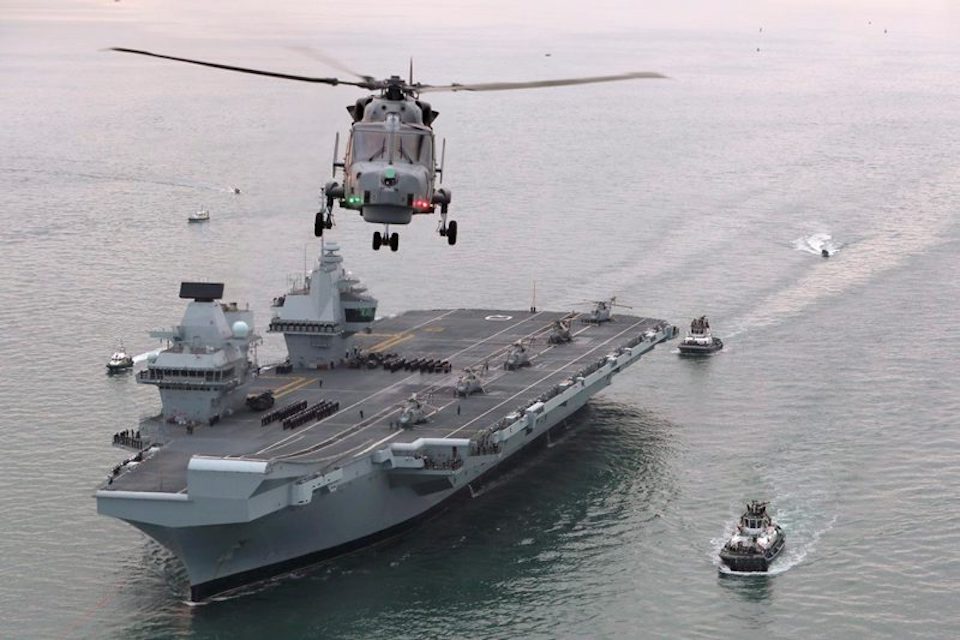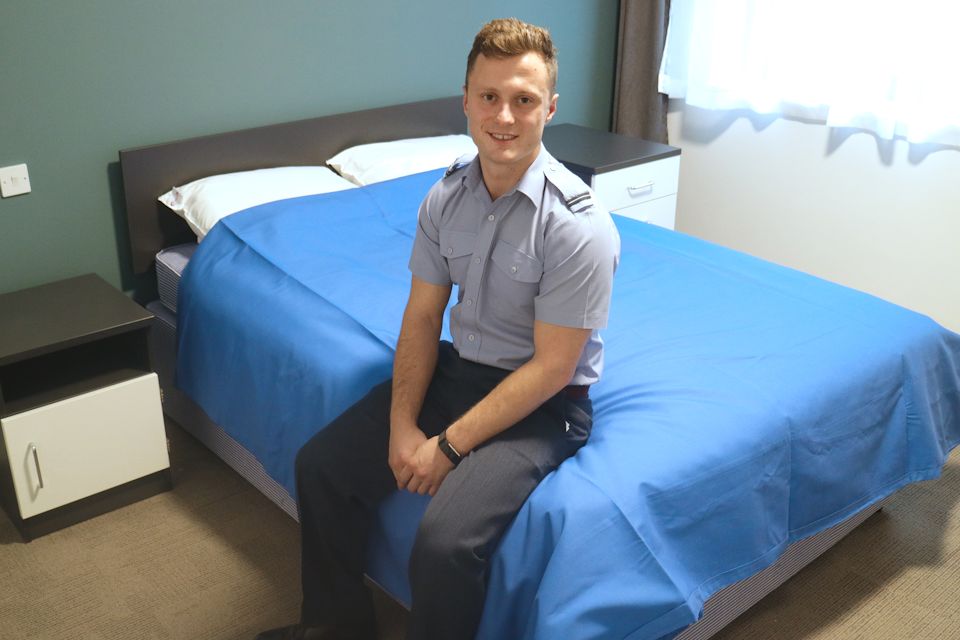News story: The British Army combat the illegal trade in wildlife by partnering with African parks and the Malawian Department of National Parks and Wildlife
The illegal trade in wildlife is estimated to be worth between £7 -17 billion a year.
Such is the scale of this criminal industry that it is of international concern.
Often linked to other serious organised crime, the illegal trade in wildlife impacts on much more than the existence of many species already on the brink of extinction, undermining governance and the rule of law.
Tackling this deplorable trade is a priority for the UK government, and the reason why the UK Government is holding the illegal wildlife trade conference in London next year. Working with Rangers, the British Army’s soldiers has already had an impact, reducing the number of poachers entering Liwonde National Park.
Minister for the Armed Forces, Mark Lancaster said:
The illegal trade in wildlife significantly damages the ecologies and economies of many African countries, and we are determined to help defeat this problem. British soldiers have had a real impact in helping to counter poaching. Following this, the UK Government will now look at what more can be done to support the affected countries.
The Ranger training is just one example of the UK Government’s wider commitment to tackling the effects of the illegal trade in wildlife.
The Department for Environment, Food and Rural Affairs (Defra) is funding this counter-poaching partnership project with the African Parks’ Rangers in Liwonde National Park. Its aim is to reduce the number of poaching incidents by providing training in proven interception tracking tactics, which will develop the rangers’ counter-poaching skills.
Defra has also announced plans to impose a ban on ivory sales to help bring an end to the poaching of elephants. The proposals will protect elephants and help combat poaching by removing opportunities for criminals to trade illegally-poached ivory.
The Environment Secretary, Michael Gove, said:
The decline in rhinos, elephants and countless other species shames our generation and the need for radical and robust action to protect these treasured species is beyond dispute.
That is why we are funding training missions of this kind around the world and we have announced plans to ban the sale of ivory, which should never be seen as a commodity for financial gain or a status symbol.
These plans will put the UK front and centre of global efforts to end poaching and the insidious trade in ivory.
The charity Tusk began this project with Defra, working alongside the conservation non-profit African Parks, which has managed Liwonde National Park in partnership with Malawi’s Department of National Parks and Wildlife (DNPW) since 2015.
Charlie Mayhew, Chief Executive of Tusk said:
Poaching is one of the greatest and most immediate threats to Africa’s elephant, rhino and countless other species, but at Tusk we have seen that it is possible to overcome it through a combination of well-trained rangers, information gathering and analysis, and a strong level of local community support.
The British Army’s involvement will have a game-changing impact in the project areas, creating a very strong deterrent to poaching and good relations with the local communities. We’ve been delighted to play our role in making this engagement a success.
The project got underway this summer.
Soldiers were selected from a range of units across the British Army. They were chosen based on their natural aptitude for tracking and flair for mentoring.
As a result, the make-up of the team boasted a wide range of skills and experiences including infantry, armored vehicle driving and engineering abilities.
For one member of the team, British Army Seargent Kachoka Kingly, who grew up in the area, the deployment had a very special significance as he returns home to Malawi.
Seargent Kachoka Kingly said:
As a local boy, this means a lot to me and my community. This is my home, and to be given the opportunity to come back and protect my country’s natural treasures, I feel like a hero. Not only have I been able to support the team with my tracking skills, it has been beneficial to the whole team to have me on board, as a translator and cultural advisor.
The soldiers worked side by side with teams from African Parks and the Malawian Department of National Parks and Wildlife to mentor the Rangers.
The joint-training combined elements of information analysis, tracking, bushcraft and infantry skills, all aimed at the successful interception of the poacher.
This partnership allowed both parties to hone and develop their skills resulting in a much more effective, agile force capable of tracking both people and animals over a long distance. The UK soldiers have been able to learn and develop their own tracking skills, something the team do not get to practice in such terrain very often.
The UK Operational Commander of the deployment, Major Tony Viney, described the three-man tracking groups as ‘ghosts in the park.’ Leaving a minimal trace on the ground and being able to cover vast areas, the patrols are a strong deterrent to any poacher considering entering the park.
Comp Sargent Major Francis Condron said:
Tracking is a fascinating skill, and the rangers are so enthusiastic and happy to share their experience.
It is such a useful skill to have, and now having this knowledge I think I’ll be able to use it in other situations as a useful survival skill, both with the Army and at home. I have already taught my kids the basics.
Working alongside the British soldiers the Rangers have improved their patrol techniques to better use their equipment and terrain, this includes lengthening their daily patrols and reducing the weight of their equipment by 30% so they can be more agile.
With 548 km2 of woodland and dry savannah to cover, the shift to these long-range patrols has paid off. During the three-month period, the teams removed 362 snare traps, two gin traps and more than 700 meters of illegal fishing nets the park.
There is no doubt that the joint team approach has made a positive impact on counter-poaching in Liwonde National Park. The Rangers made 11 arrests, all of which have led to convictions, and nine poacher camps have been destroyed.
Since 2015, African Parks has held six different courses in Liwonde training a total of 166 rangers from across six of the parks it manages, with a vision to securing habitat and combatting poaching. Significant investments have been made in up-skilling Rangers, providing them with the needed equipment and motivating them. The British Military deployment is part of this broader sustained initiative.
These developments are having a major impact on poaching, not only through the delivery of justice but also by deterring poachers from committing such crimes in the first place.


